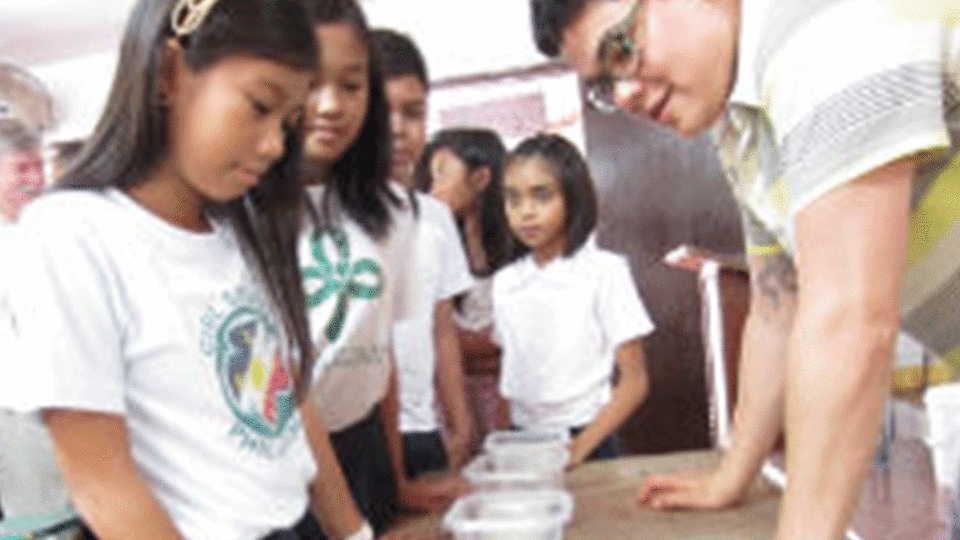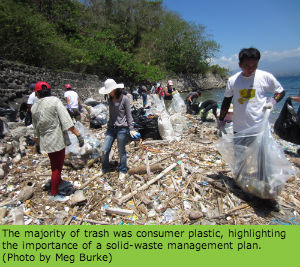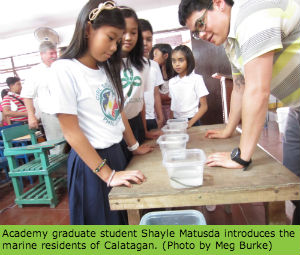Educational outreach: the perfect partner to scientific research


The beaches of the Philippines are beautiful, but they're not without the environmental challenges facing many parts of the world. To help address the issue of trash along the coast, the Academy expedition co-hosted a "Coastal Clean-Up" event with our friends from the U.S. Embassy.
We focused our work on a small beach on Corregidor Island, where tons of (mostly plastic) trash littered the beach—in some places as deep as 3 feet. In addition to cleaning a section of the beach, our efforts helped to spread awareness about the importance of actions such as keeping trash out of the ocean, creating a solid-waste management plan, and encouraging better personal environmental decisions.
Coastal clean-up projects are just one method of educational outreach, which is an extremely important component of Academy research expeditions. From teacher workshops to events with local communities, Meg and I have been working hard to spread the message about the unique natural resources that exist in the Philippines, and how important it is to take action to protect these areas.

At each of our primary research areas, the expedition team has been holding community-outreach events where local students, teachers, and interested community members come to learn about the expedition and hear updates from both Academy and Filipino scientists—and to meet some of the charismatic marine invertebrates of the region.
We try to deliver our message in an inspirational, action-oriented way, and we're happy to say it's been incredibly well received. There are many things that can be done to ensure the biodiversity of coral reefs is protected, and the Filipino audiences we've encountered are up for the challenge. From minimizing plastic consumption to supporting legislation for marine protected areas (areas that are already proving themselves highly successful at protecting marine life), we've heard some wonderful ideas from the local communities we've engaged.
This kind of community outreach goes hand-in-hand with the scientific research we're conducting on the Verde Island Passage. While research contributes to our understanding of species richness—and provides the hard data that conservation actions require—outreach helps to inspire that action. Through programs at elementary and other schools, it also helps to ensure that protections of these biodiverse areas will have many supporters for generations to come.
—Katie Levedahl, Assistant Director of Youth Programs